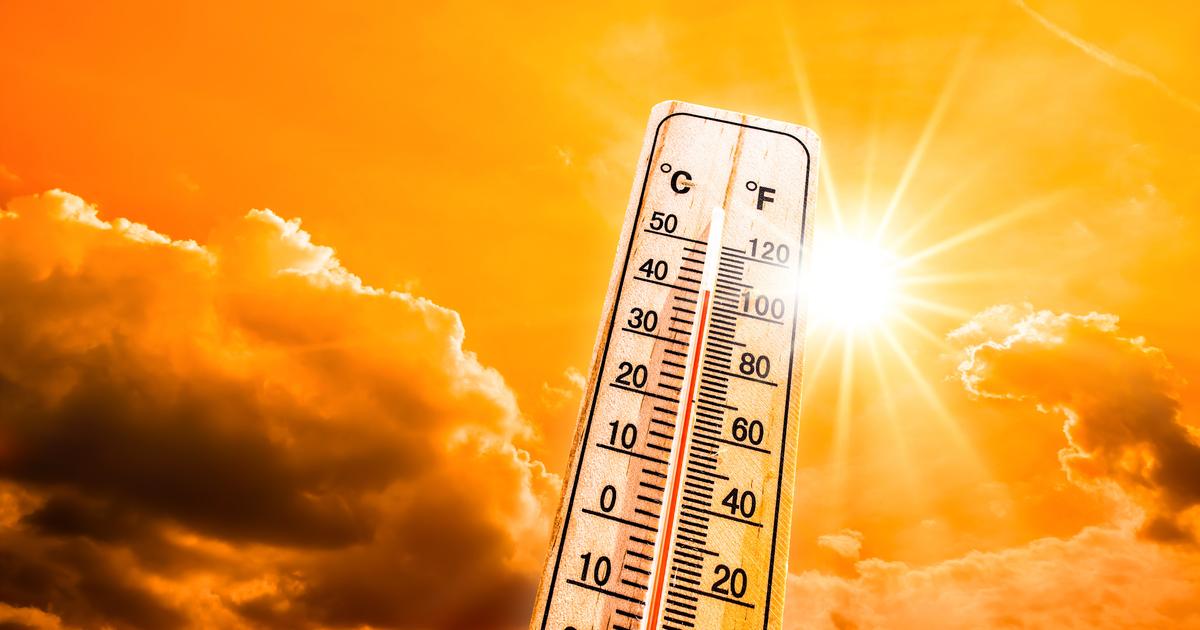What will winter 2021/2022 be like in Germany?
The La Niña weather phenomenon could cause extreme cold spells and icy temperatures.
Kassel - The winter of 2021/2022 threatens to bring a massive wave of cold to Germany.
A cool autumn is already heralding it.
Deep Nael causes a sudden onset of winter. *
Meteorologists are pointing to the first signs that a La Niña winter could be imminent.
But what is this weather * event all about and what are the effects?
An overview.
La Niña winter: This is how the phenomenon affects the weather in Germany
La Niña has a massive impact on weather and climate around the world.
These are temperature fluctuations that occur in the central and eastern Pacific near the equator.
The sea surface cools down in the process.
This phenomenon can occur about every two to seven years.
It causes a drop in temperature and, in some parts of the world, significantly more precipitation.
Hurricanes and hurricanes can also occur more frequently.
In contrast, the El Niño phenomenon tends to occur in summer and has the opposite effect.
Rather, it leads to an increase in temperatures.
The effects of La Niña were already felt this year.
Because it provided a cooling effect at the beginning of the year, which is why 2021 is likely to be “only” the fifth warmest year since the weather records began.
Winter in Germany: Is there a threat of freezing cold in 2021/2022?
Signs point to La Niña
La Niña could strike again this year.
Thomas Saunders, chief meteorologist at Sky News Australia, reports on his observations on Twitter.
Accordingly, the temperatures on the ocean surface in the Pacific have already fallen below the threshold of La Nina.
If this continues over three months, one speaks of the weather phenomenon La Niña.
Meteorologist Jason Nicholls also agrees.
At the equator, the Pacific continues to cool down to a depth of 200 meters.
It is expected that La Nina will make itself felt over several months.
Winter in Germany | Temperature in Germany mean |
|---|---|
2020 | 4.2 degrees Celsius |
2019 | 2.8 degrees Celsius |
2018 | 1.5 degrees Celsius |
2017 | 1 degree Celsius |
2016 | 3.6 degrees Celsius |
2015 | 1.9 degrees Celsius |
2014 | 3.3 degrees Celsius |
2013 | 0.3 degrees Celsius |
2012 | 1.1 degrees Celsius |
2011 | 0.6 degrees Celsius |
2010 | -1.3 degrees Celsius |
Source: wetterkanal.kachelmannwetter.com |
The characteristics of El Niño are an important indicator of how much La Niña can affect the weather.
The El Niño Oscillation (ENSO) is used for this.
When the ENSO value drops well below 0, La Nina really gets going.
According to the meteorologist Levi Cowan, this value is currently -1.
According to the US weather service NOAA, a typical La Niña event causes significantly more rain and snow as well as lower temperatures in the north of the USA.
In the south, on the other hand, temperatures rise and precipitation tends to decrease.
But how will this affect Europe and the weather in Germany?
Weather in Germany: Will La Niña cause a wave of cold in winter 2021/2022?
La Niña was particularly noticeable in the weather in Germany in winter 2010/2011. December was freezing cold at the time and La Niña was also very strong, explains graduate meteorologist Dominik Jung.
But the experts from meteorology are generally very divided about the effects La Niña could have on the weather in Germany. According to wetter.de, some assume that the increased risk of cyclones and hurricanes will lead to more heat being transported north. That could have a major impact on the polar vortex. The polar vortex has recently been pushed aside, which can have massive effects on winter in Germany *. Because if the polar vortex is unstable, more and more cold air can penetrate into Europe and thus also into Germany. Siberian cold is then the result in many parts of the Federal Republic. Some weather experts even fear that it could be the coldest winter in ten years.
However, some experts also doubt that La Niña could actually make itself felt in Germany.
How winter 2021/2022 will actually turn out in Germany can only be estimated with the current long-term forecasts.
As a rule, forecasts for a period of one week are considered reliable.
Weather forecasts that go beyond this tend to deal with trends and possible scenarios.
(slo) *
hna.de is an offer from IPPEN.MEDIA.














